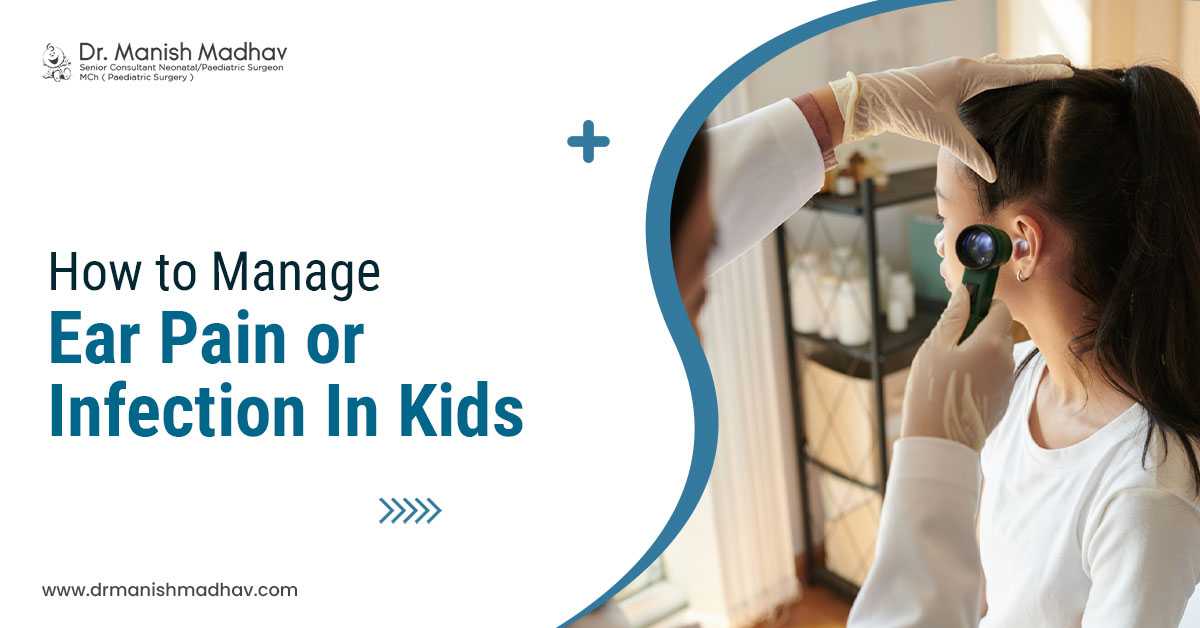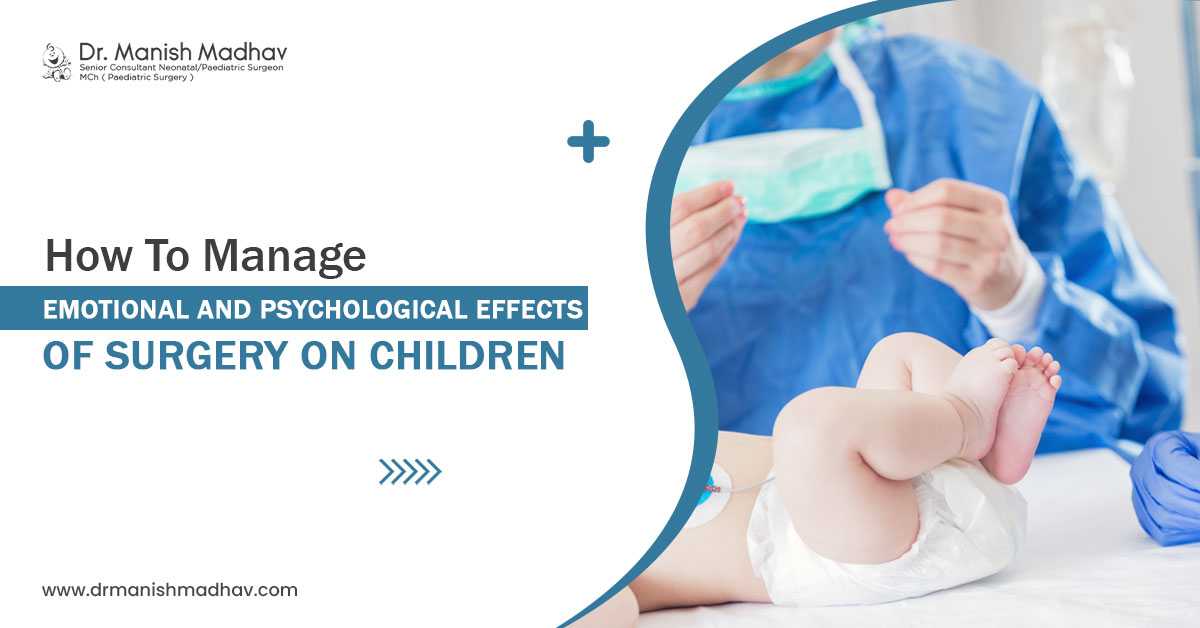First-time hospital or medical clinic visits are frequently daunting or uncomfortable for children. Therefore, paediatric clinics feature a comfy, child-friendly ambiance. Preventive clinic visits, ongoing treatment, pre-surgery visits, post-operative visits, and hospitalization are all common experiences of care for pediatric patients that can be emotionally tough and mentally uneasy. To prepare your little one for child surgery in Siliguri and its post-operative mental effects, here’s a guide that can be of great help.
Insights into the Emotional Impact of Surgeryon Children
Surgery in children can trigger a range of emotions, including fear, worry, uncertainty, low mood, and sadness. The new hospital environment, separation from family during treatment, and post-operative discomfort can be uncomfortable for young individuals.
Because of their developmental stage and limited reasonable thinking, children express their feelings through behavior rather than words. Since they lack control over their surroundings, children frequently experience psychological issues manifested as anxiety, hostility, rage, and other emotional problems.
Some widely common emotional and psychological impacts on kids are:
· Pre-surgery anxiety includes concerns about the unknown, discomfort, and what may happen during the treatment.
· Post-surgical mood changes include irritability, withdrawal, or clinginess as a result of discomfort or confusion.
· Trauma or fear of medical settings (operation theatre), which might cause a long-term phobia of physicians/ child specialists or hospitals.
Parents, doctors, and caregivers can better help children during the process by acknowledging that these responses are natural and curable.
Here are some tips to manage the emotional and psychological effects
· Open communication
Children deserve age-appropriate information about their procedures. Avoid overloading them with technical details, but be upfront about what they may expect and everybody around them so that they recover most quickly.
Use comfortable words to describe the technique. Reassure your children that the operation will make them feel better. Encourage kids to ask questions and express their feelings or emotions. Let your little ones know that they are brave enough.
· Prepare them for the hospital environment
Let your child get familiar with the hospital because familiarising children with what will happen in the hospital may reduce their anxieties or stress. Using literature, films, or role-playing games to describe the method in a kid-friendly way. Allow your children to bring their favorite toys and blankets for comfort.
· Give kids a secure area to express their feelings
Encourage children to express themselves artistically by sketching, writing, or storytelling. It’s important to let your kids that it is okay to cry or be afraid but kids like them are powerful enough to recover as fast as possible.
· Be there and be supportive
Your presence is one of the most reassuring things for your kid.
Stay by your child’s side as much as possible during their recovery. Your hugs, handholding, signing lullabies,helping them feed, listening to their worries, and sharing emotions are invaluable during this time. Be there!
Aggression, disengagement, tension, moodiness, lack of collaboration, helplessness, etc., are very common among children recovering or preparing for a surgical procedure.
· Seek professional help as needed
Some youngsters may struggle more than others and require special assistance, which is normal because every kid is unique and so is his/her recovery journey.
Consult a psychiatrist or counselor who specializes in paediatric psychiatry.
You can join support groups for families going through similar situations.
What you need to know during this time
Untreated childhood trauma from surgery or long-term treatment/ healthcare-induced anxiety can produce substantial mental health disorders in a child's life. Hence, if you notice or se signs of low mood, anxiety, sleeplessness, fear, aggression over little things, frequent crying, etc. even after recovery, consulting a pediatric psychiatrist is of great importance.
Initially, you can consult a pediatrician in Siliguri or near you for emotional and psychological problems in kids after surgery. Parents and caregivers have a critical role in assisting children with the psychological impacts of pediatric surgery. However, the procedure can be emotionally tough for adults as well. Staying strong during this moment for your child is essential.
Take care of your mental health by practicing relaxation methods. Also, you need to be physically fit so do not skip meals because you’re busy and stay hydrated so that you remain strong for your kid throughout. Seek aid and guidance from family, friends, or support groups. Maintain open contact with healthcare providers to ensure clarity and advice whenever you need it.
Rebuilding a child's confidence and feeling of normalcy may take time because they are kids and their cognitive responses are limited. Celebrate little victories in the hospital and focus on their bravery along the road. When it comes to returning to daily activities, school, or food habits, parents must follow medical advice.
While informing a newborn about surgery is unnecessary, toddlers and preschool-aged must be informed about the procedure and hospital visits in easy language (kid-appropriate language). Plus, telling your adolescents about surgery, how they can benefit from it, and how they can recover minimum pian after surgery in easy or easy terms is helpful. Consult your pediatrician for effective child surgery in Siliguri City.




